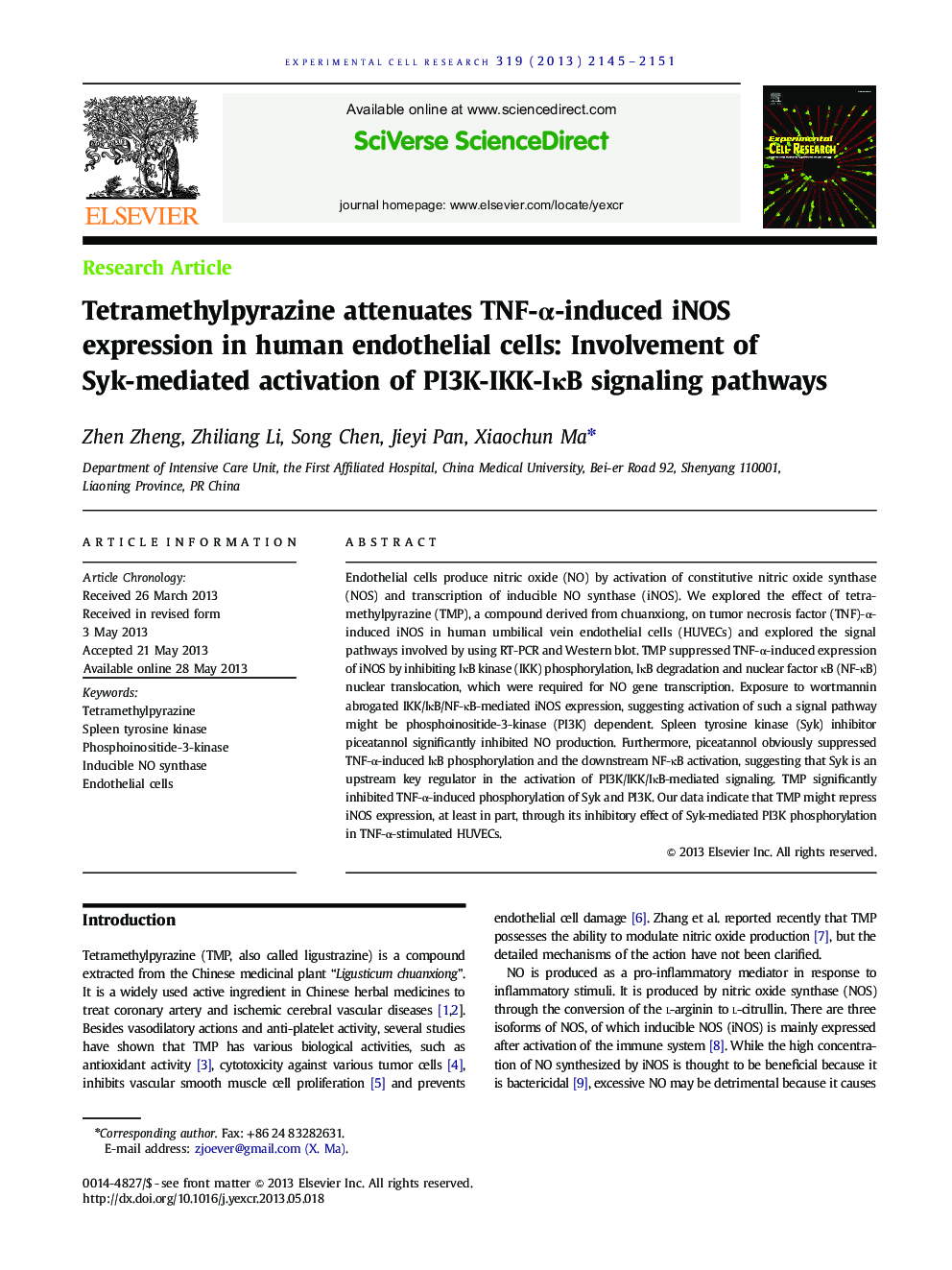| Article ID | Journal | Published Year | Pages | File Type |
|---|---|---|---|---|
| 10904283 | Experimental Cell Research | 2013 | 7 Pages |
Abstract
Endothelial cells produce nitric oxide (NO) by activation of constitutive nitric oxide synthase (NOS) and transcription of inducible NO synthase (iNOS). We explored the effect of tetramethylpyrazine (TMP), a compound derived from chuanxiong, on tumor necrosis factor (TNF)-α-induced iNOS in human umbilical vein endothelial cells (HUVECs) and explored the signal pathways involved by using RT-PCR and Western blot. TMP suppressed TNF-α-induced expression of iNOS by inhibiting IκB kinase (IKK) phosphorylation, IκB degradation and nuclear factor κB (NF-κB) nuclear translocation, which were required for NO gene transcription. Exposure to wortmannin abrogated IKK/IκB/NF-κB-mediated iNOS expression, suggesting activation of such a signal pathway might be phosphoinositide-3-kinase (PI3K) dependent. Spleen tyrosine kinase (Syk) inhibitor piceatannol significantly inhibited NO production. Furthermore, piceatannol obviously suppressed TNF-α-induced IκB phosphorylation and the downstream NF-κB activation, suggesting that Syk is an upstream key regulator in the activation of PI3K/IKK/IκB-mediated signaling. TMP significantly inhibited TNF-α-induced phosphorylation of Syk and PI3K. Our data indicate that TMP might repress iNOS expression, at least in part, through its inhibitory effect of Syk-mediated PI3K phosphorylation in TNF-α-stimulated HUVECs.
Keywords
Related Topics
Life Sciences
Biochemistry, Genetics and Molecular Biology
Cancer Research
Authors
Zhen Zheng, Zhiliang Li, Song Chen, Jieyi Pan, Xiaochun Ma,
